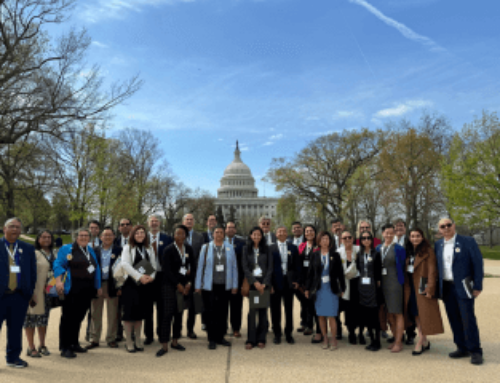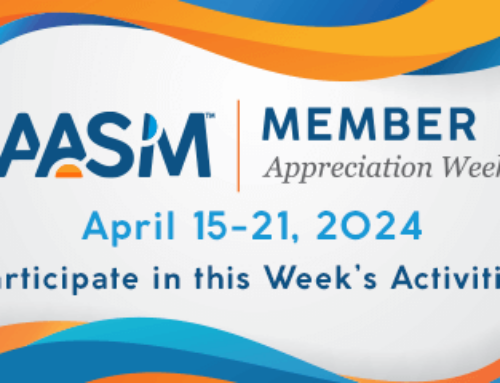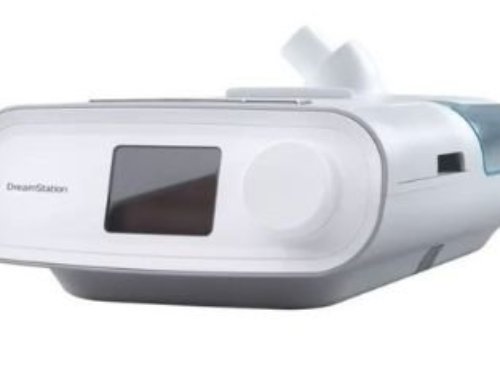The American Board of Medical Specialties (ABMS) recently posted a report drafted by the “Continuing Board Certification: Vision for the Future Commission,” which reviewed the purpose and framework of the current maintenance of certification (MOC) process. In response to the draft report, the American Academy of Sleep Medicine (AASM) submitted a comment letter during the public comment period.
For our members the AASM provides the following summary of the 96-page report.
Background
The AASM has previously highlighted several major problems with the current MOC program: 1) burden & cost; 2) ongoing examinations; 3) variable need for certification in primary specialty to maintain certification in sleep medicine.
The ABMS launched an initiative to review the current MOC system, including its underlying principles and purpose, culminating in the “Vision for the Future” report, which provides a framework for a new system of continuing certification. It is primarily a statement of the fundamental principles for this new system, with the acknowledgement that the actual implementation of the envisioned system will be the work of others. Some recommendations are “aspirational,” but the commission has set the goal that all recommendations will be addressed by member boards in some way within the next five years. Implementation of these recommendations is where the new system either will or will not meet the needs of AASM members; development of this report is just one step in a process that will need to be carefully monitored.
The fundamental principle for continuing certification identified by the commission is one that is well-aligned with the AASM’s goals: “The purpose of continuing certification is to serve the diplomates, the public, and the profession by providing a system that supports the ongoing commitment of diplomates to provide safe, high-quality, patient-centered care.”
In pursuit of this principle, the commission made a series of 15 recommendations, some of which are clearly aligned with AASM goals. Others are potentially controversial or problematic.
Most Notable Recommendations
Recommendation 2: Continuing certification should incorporate assessments that support diplomate learning and retention, identify knowledge and skill gaps, and help diplomates learn advances in the field.
The commission distinguishes between formative and summative assessments. Formative assessments are tools to identify strengths and gaps in knowledge in order to target future learning. Summative assessments are akin to a grade of pass/fail (e.g., high-stakes, 10-year exams). The commission states that most assessments should be formative, and that timely, relevant feedback must be presented as part of any assessment. Furthermore, assessments should be based on what is known about adult learning, including use of frequent, spaced learning; repeated assessments; and gap analysis. Summative decisions should be made from an aggregation of multiple assessments and other data over time.
The Commission explicitly recommends against a single, high-stakes (and/or highly-secured) examination for summative decisions. There is an emphasis on multi-source data for the assessment of competencies, with an acknowledgement that such approaches will need to be appropriately tested to ensure they are meeting their stated goals. In particular, the commission recommends that new assessment technologies be somehow aligned with the work of clinical practice, to minimize burden. The commission provides a carve-out to allow high-stakes examinations in specific cases (e.g., remediation, re-certification after a hiatus).
Recommendation 4. Standards for learning and practice improvement must expect diplomate participation and meaningful engagement in both lifelong learning and practice improvement.
The commission acknowledged that there is a lot of burden to practice improvement programs as currently implemented, but it still decided that practice improvement is a critical component of continuing certification. The commission encourages boards to pilot programs that will be meaningful, rather than “check-box” activities. Boards are encouraged to develop processes such that improvement work already being done by physicians as part of their current work can be used to meet continuing certification requirements, to minimize burden and work duplication. However, the commission asserts that lifelong learning cannot only include self-directed CME activities because they vary in quality, and data show that physicians are not good at self-identifying gaps in knowledge to be remediated.
Recommendation 5: ABMS Boards have the responsibility and obligation to change a diplomate’s certification status when certification standards are not met.
According to the commission, the ABMS boards have obligations to the public, as well as to physicians. Changes in certification status should be made in a way that is transparent, supports due process rights, and has clear pathways for appeal and regaining certification. There may be value in having multiple statuses other than certified or not. The Commission believes that all diplomates (i.e., including those previously designated as lifetime certificate holders) should participate in continuing certification programs.
Recommendation 7: ABMS Boards should collaborate with professional and CME/CPD organizations to create a continuing certification system that servers the public while supporting diplomates in their commitments to be better physicians.
The commission recommends that ABMS Boards should share assessment results with these organizations to help with curriculum development. All organizations should work together on a data strategy to allow transfer of information that can ease diplomate burden, reduce costs, and encourage meaningful participation. For example, providers already participating in registries should be able to have registry information shared with ABMS Boards as part of their continuing certification activities. Other practice data could be incorporated into practice improvement work through a successful data strategy. ABMS Boards should meet at least annually with major subspecialty organizations and state medical societies/boards.
Recommendation 8: The certificate has value, meaning and purpose in the health care environment.
The commission recommends that hospitals, health systems and payers can independently decide what factors are used in credentialing and privileging decisions. However, ABMS must inform these organizations that continuing certification should not be the only criterion used in these decisions. This recommendation is made in part in response to stakeholder concerns that loss of credentialing can result in loss of employment/insurance reimbursement.
Recommendation 9: ABMS and the ABMS Boards should collaborate with other organizations to facilitate and encourage independent research.
The commission notes that this research should identify the contribution of certification to high quality, patient-centered care and determine which forms of assessment and professional development activities are most effective. However, the report does not indicate who should pay for this research.
Recommendation 10. ABMS Boards must collectively engage in a regular continuous quality improvement process and improve the effectiveness and efficiency of continuing certification programs.
The commission recommends that fees charged to diplomates should be the minimum necessary to finance operations and supply sufficient reserves.
Recommendation 14: ABMS Boards should have consistent certification processes.
These processed include grace periods and remediation, re-entry and appeals processes.
Recommendation 15. ABMS Boards should facilitate reciprocal longitudinal pathways that enable multi-specialty diplomates to remain current in multiple disciplines across ABMS Boards without duplication of effort or excessive requirements.
The commission notes that some ABMS Boards required maintenance of the primary certificate when practicing in the subspecialty while others did not.
Other Recommendations
Recommendation 1: Continuing certification should constitute an integrated program with standards for professionalism, assessment, lifelong learning and practice improvement.
Recommendation 3: Professionalism is an important competency for which specialty-developed performance standards for certification must be implemented.
Recommendation 6: ABMS Boards must have clearly defined remediation pathways to enable diplomates to meet assessment, learning and practice improvement standards in advance of any loss of certification.
Recommendation 11: ABMS Boards must comply with all ABMS certification and organizational standards.
Recommendation 12: Continuing certification should be structured to expect diplomate participation on an annual basis.
Recommendation 13: ABMS Boards must regularly communicate with their diplomates about the standards for the specialty and to foster feedback about the program.
The AASM will continue to monitor developments related to MOC reform and will advocate for the needs of sleep physicians.









